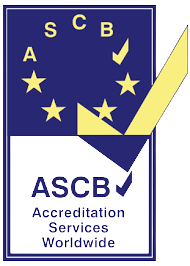Table of Content
Introduction
Businesses face unique obstacles in hiring during recession. The global recession brings uncertainties and cutbacks, making the recruitment process more complex.
However, finding the right employees is essential for a company's growth and success despite these obstacles. This article will delve into the 5 significant obstacles employers encounter when hiring during a recession and offer practical solutions to overcome them.
Want to skip the content?

5 Obstacles In Hiring During Recession With Smart Strategies To Tackle It
-
Economic Uncertainty and Budget Constraints
The first obstacle that businesses encounter during a recession is economic uncertainty. Companies often become cautious with their budgets, leading to a hiring freeze or reduction in the workforce. Additionally, they may hesitate to invest in new talent due to concerns about the market's stability and financial position.
Solution:
To overcome this obstacle, businesses can adopt a strategic approach. Instead of a complete hiring freeze, they can prioritise critical positions and allocate funds accordingly.
Additionally, embracing a flexible workforce by considering part-time, freelance, or contract-based hiring can be cost-effective.
Companies can maintain productivity without compromising quality by investing in key roles and leveraging remote work options. For the best results, companies and HRs can entrust uKnowva HRMS that helps to bring discipline in the leaves and attendance, even for the deskless workers or blue-collar workers.
This happens with the availability of the geo-fencing and geo-tagging features to be added onto the virtual biometric system by uKnowva.
-
Decreased Applicant Pool and Increased Competition
During a recession, the pool of available job applicants often decreases. Many individuals may hold onto their current positions, fearing limited job opportunities in the market. Moreover, the rise in unemployment leads to increased competition among job seekers for the few available positions.
Solution:
Businesses can enhance their employer brand to address the limited applicant pool and heightened competition.
Focusing on showcasing a positive work culture, offering competitive compensation packages, and emphasising long-term career growth opportunities can attract top talent. Partnering with recruiting agencies and using online job portals can also widen the reach of potential candidates.
Besides that, HRs can keep a talent pool to collect different resumes over time and go back to review when needed the most. These documents are saved and easily accessible when HRs are using uKnowva at their organisation. It takes less time for the recruiters to scout the next talent, especially when the budget is falling short and the talent gap is widening.
-
Skill Mismatch and Talent Shortages
Another challenge faced by employers is a skill mismatch between available candidates and required job roles. Recruiters may struggle to find candidates with the specific skills and expertise needed to fill critical positions. Talent shortages in certain industries further exacerbate this issue.
Solution:
Companies can invest in upskilling and reskilling their current employees to overcome skill mismatches and talent shortages. Implementing training programs and mentorship initiatives can help existing staff acquire the necessary skills. Collaborating with educational institutions and industry associations can create a talent pipeline with the required skill sets.
Despite that, companies can upload new courses using the eLMS function at uKnowva. This improves the functionality of the software at the workplace. It makes employees learn new skills and talents together collaboratively. They can communicate with one another and know what more lessons are left to complete.
Later, it helps reporting managers when they access the HR analytics to know the information on high performers, interactive students, and much more.
-
Employee Morale and Retention
Employees may experience low morale during a recession due to job insecurity and increased workloads. The fear of layoffs and job instability can lead to a decline in business and employee productivity and employee satisfaction.
Furthermore, retaining top performers becomes challenging as they might seek more stable opportunities elsewhere.
Solution:
Companies should prioritise open communication to boost employee morale and improve retention rates.
Regularly sharing company performance updates, addressing employee concerns, and recognising their contributions can create a positive work environment. Offering performance-based incentives and growth opportunities can motivate employees to stay committed to the organisation.
-
Adapting to Remote Work and Virtual Hiring Processes
The shift towards remote work during the recession presents a significant challenge for businesses. Traditional hiring processes that relied on in-person interviews and onboarding must now be adapted to virtual settings. This transition can be daunting for both employers and candidates.
Solution:
Companies should embrace human resource management software to adapt to remote work and virtual hiring processes. Utilising uKnowva can help recruiters to save and parse CVs, shortlist candidates for interviews, send them timely follow-ups based on the triggered actions, and streamline the entire hiring process with the paperless onboarding module.
Conclusion
Employers face multiple obstacles in hiring during recession, but with the right strategies, businesses can navigate these challenges successfully.
By understanding the economic landscape, enhancing employer branding, investing in employee development, and embracing virtual hiring practices, companies can overcome hiring obstacles and strengthen their workforce for future growth.
Remember, flexibility and adaptability are key to thriving during uncertain times.
Frequently Asked Questions (FAQs)
How can companies cope with hiring challenges during a recession?
Companies can cope with hiring challenges during a recession by strategically prioritising essential positions, investing in flexible workforce options, and enhancing their employer brand.
What steps can businesses take to attract top talent during a recession?
Businesses can attract top talent during a recession by showcasing a positive work culture, offering competitive compensation packages, and emphasising long-term career growth opportunities.
How can employers address skill mismatches and talent shortages?
Employers can address skill mismatches and talent shortages by investing in upskilling, relearning, and reskilling programs for current employees and establishing partnerships with educational institutions and industry associations.
What can companies do to retain employees and boost morale during a recession?
Companies can retain employees and boost morale during a recession by fostering open communication, recognising employee contributions, and offering performance-based growth opportunities.












